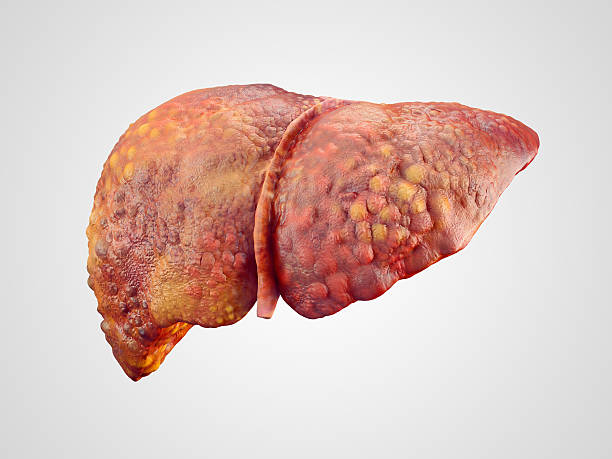Future Advancements in the Treatment of Fatty Liver Disease
Fatty liver disease, encompassing both non-alcoholic fatty liver disease (NAFLD) and non-alcoholic steatohepatitis (NASH), has emerged as a global health concern. As research continues to deepen our understanding of the underlying mechanisms and complexities of the disease, several promising advancements in the treatment of fatty liver disease are on the horizon. These potential future developments offer hope for more effective management and improved patient outcomes. Here are some key areas of advancement:
Targeted Pharmacological Therapies: Efforts are underway to develop targeted pharmacological therapies that address specific molecular pathways involved in the development and progression of fatty liver disease. Several drug candidates are being investigated, including agents targeting hepatic steatosis (accumulation of fat in the liver cells), inflammation, oxidative stress, and fibrosis. Promising drug classes include peroxisome proliferator-activated receptor (PPAR) agonists, fibroblast growth factor (FGF) analogs, and agents modulating mitochondrial function. These targeted therapies aim to provide more effective and tailored treatment options for patients with fatty liver disease.
Nutraceuticals and Herbal Interventions: Nutraceuticals, which include dietary supplements and functional foods with potential health benefits, are being explored as adjunctive treatments for fatty liver disease. Substances such as omega-3 fatty acids, vitamin E, and polyphenols from sources like green tea, curcumin, and resveratrol have shown promising results in preclinical and clinical studies. These compounds exhibit antioxidant, anti-inflammatory, and metabolic modulatory effects, which may help mitigate liver fat accumulation and improve liver health.

Gut Microbiota Modulation: Emerging evidence suggests a significant role for the gut microbiota in the development and progression of fatty liver disease. Future advancements may focus on therapeutic approaches that target the gut-liver axis by modulating the composition and function of the gut microbiota. Strategies such as probiotics, prebiotics, postbiotics, and fecal microbiota transplantation hold promise in restoring microbial balance, reducing inflammation, and improving metabolic dysfunction associated with fatty liver disease.
Personalized Medicine: The era of personalized medicine aims to tailor medical interventions to individual patients based on their unique characteristics, including genetic, metabolic, and environmental factors. With advancements in genetic profiling and biomarker research, future treatments for fatty liver disease may become more personalized, enabling healthcare providers to identify individuals at higher risk of disease progression and determine optimal therapeutic strategies for each patient. This approach may help optimize treatment outcomes and improve long-term prognosis.
Lifestyle Interventions and Behavioral Changes: Despite pharmacological advancements, lifestyle modifications remain a fundamental aspect of fatty liver disease management. Future treatment strategies will likely place an increased emphasis on targeted interventions that promote sustainable behavior changes. Innovative digital health tools, mobile applications, and wearable devices may assist in monitoring physical activity, dietary habits, and overall lifestyle, providing personalized feedback and support to patients.
Gene Therapies and Genetic Interventions: Advancements in gene therapies and genetic interventions hold significant potential for the treatment of fatty liver disease. Researchers are exploring strategies to modify gene expression and correct genetic abnormalities associated with the development of fatty liver disease. Gene editing technologies, such as CRISPR-Cas9, offer precise tools for targeting and modifying specific genes involved in lipid metabolism, inflammation, and fibrosis. These innovative approaches may pave the way for personalized gene therapies that address the underlying genetic factors contributing to fatty liver disease.
Combination Therapies: Given the complex nature of fatty liver disease, combination therapies that target multiple pathways simultaneously are being investigated. The rationale behind combination therapy is to achieve synergistic effects by targeting different aspects of the disease, such as reducing hepatic fat accumulation, alleviating inflammation, and improving insulin sensitivity. Combining pharmacological agents with lifestyle interventions, such as diet and exercise, may enhance treatment outcomes and provide a holistic approach to managing fatty liver disease.
Artificial Intelligence and Machine Learning: The integration of artificial intelligence (AI) and machine learning (ML) technologies has the potential to revolutionize the diagnosis, risk stratification, and treatment selection for fatty liver disease. AI algorithms can analyze large datasets, including medical imaging, genetic profiles, and clinical parameters, to identify patterns and develop predictive models. This can aid in early detection of fatty liver disease, prediction of disease progression, and individualized treatment recommendations. AI-powered decision support systems may assist healthcare providers in optimizing patient care and treatment outcomes.
Patient Education and Empowerment: In the future, increased emphasis will be placed on patient education and empowerment as essential components of fatty liver disease management. Empowering patients with knowledge about the disease, lifestyle modifications, and treatment options can improve treatment adherence and self-management. Educational resources, digital platforms, and support networks will play a crucial role in equipping patients with the necessary tools and information to actively participate in their own care.
Long-Term Follow-Up and Outcomes Research: Continued research is needed to better understand the long-term outcomes and optimal management strategies for fatty liver disease. Longitudinal studies assessing the effectiveness of various interventions, including pharmacological therapies, lifestyle modifications, and combination approaches, will provide valuable insights into their sustained benefits, potential side effects, and impact on liver-related complications. Long-term follow-up of patients, along with real-world evidence and patient registries, will contribute to the refinement of treatment guidelines and the development of evidence-based recommendations.
Conclusion: The future of fatty liver disease treatment is promising, with ongoing advancements in targeted therapies, nutraceuticals, gut microbiota modulation, personalized medicine, gene therapies, AI-driven approaches, and patient empowerment. These developments offer hope for improved outcomes, individualized treatment strategies, and a deeper understanding of the disease. Continued research, collaborative efforts, and innovative technologies will drive progress in the field, ultimately leading to more effective and personalized interventions for individuals with fatty liver disease.
Comments
Post a Comment